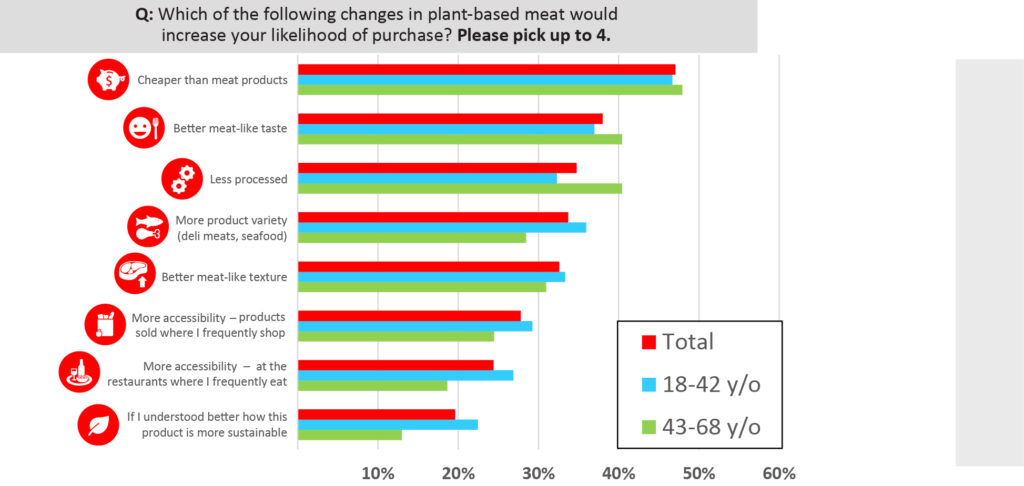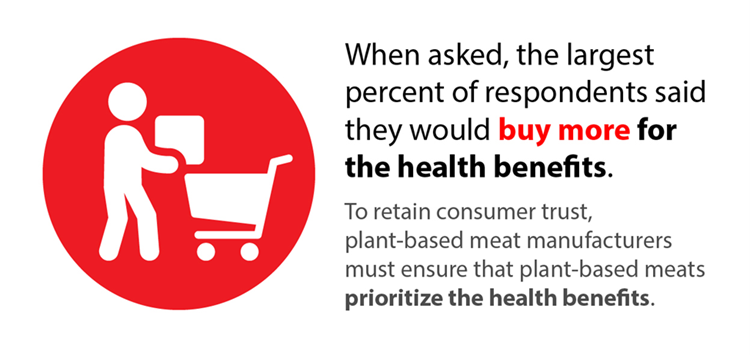In recent years, the popularity of plant-based meat skyrocketed due to consumer intrigue in an animal alternative that was more sustainable, ethical, and nutritious. However, the velocity at which these products are selling has waned, with the narrative in the food industry shifting toward skepticism and criticism.
In an effort to better understand consumer behavior around plant-based meat alternatives, we conducted a survey of 2,000 plant-based meat consumers to uncover their drivers, needs and perceptions of the category.

Our study revealed the following takeaways:
Inflation and general unease about the economy translates into a desire for cost parity to traditional meat or below, especially in older consumers, as a major driver of purchase intent.
- Taste and texture continue to be important to consumers. If taste and texture of plant-based meat alternatives aren’t meeting expectations, consumers won’t purchase. Innovation around these perennial issues can create consumer excitement to close the gap between plant-based meat and traditional meat.
- Despite the slowdown in plant-based meat sales, almost half of respondents indicated they intend to purchase more next year. When asked, the largest percent of respondents said they would buy more for the health benefits. To retain consumer trust, plant-based meat manufacturers must ensure that plant-based meats deliver on nutrition.



